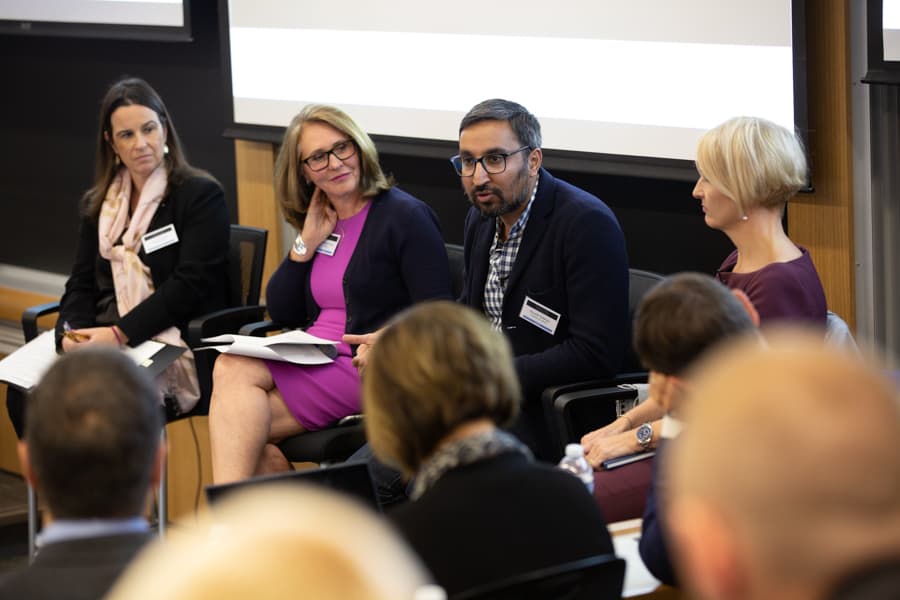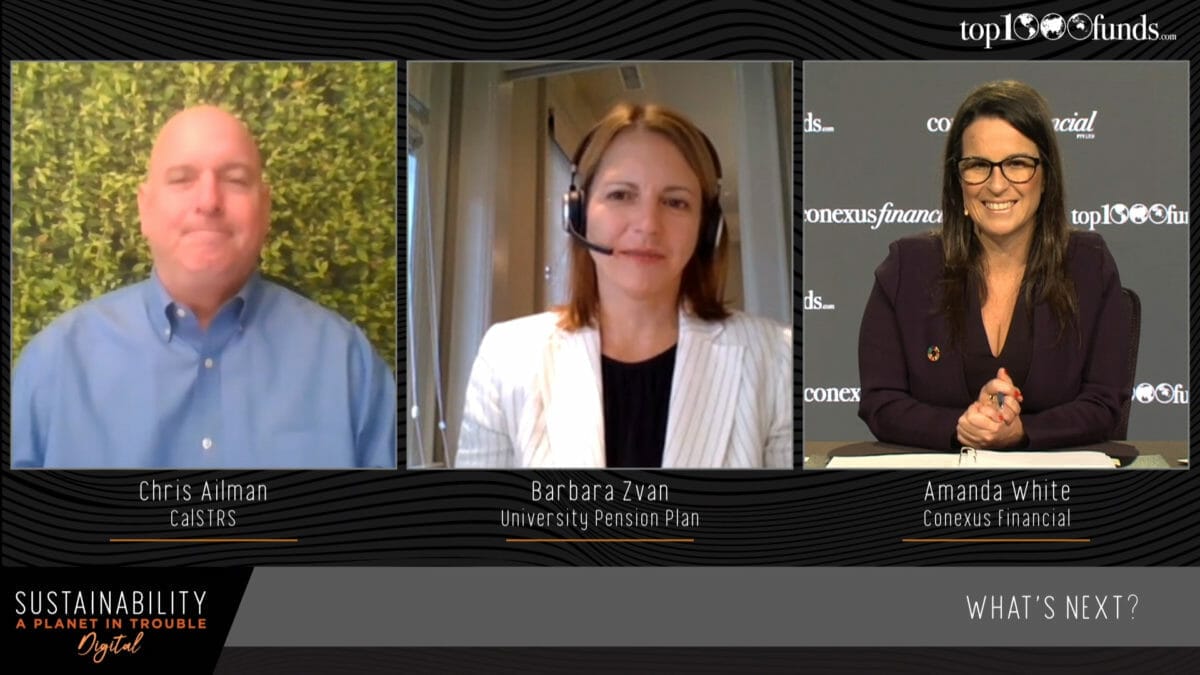Impact investment and its combination of financial returns and social or environmental purpose is beginning to move from fringe to the financial mainstream. It is part of a natural trajectory in the evolution of ESG investment first seen back in the 1800s when Quakers developed screens on slavery and tobacco investments. More recently, investors have focused on corporate social responsibility and today they have an increasing eye on impact combining intention and measurement, delegates at the Fiduciary Investors’ Symposium at Harvard University heard.
Impact investment is growing because the long-held concept that investment should only maximise shareholder value is beginning to fade.
“It is still important and many believe it still has primacy, but there is a reduction in confidence that it should be a primary factor,” said panellist Kim Wright-Violich, managing partner at Tideline, referencing America’s Business Roundtable which recently diverged from its traditional stance. It stated that the country’s large corporations should be run not just in the interests of shareholders, but also in the interests of stakeholders.
Wright-Violich said that the assumption that impact investment resulted in below market returns was also fading.
“Impact can outperform, underperform and it can also meet market rate returns,” she said, noting that impact investment is also increasingly perceived as risk mitigation. “There is less scepticism about what you have to compromise.”
In another trend, she noted “mainstream players” entering the impact market including KKR and TPG bringing real scale.
Panellists outlined how a key risk of impact investment is investment not having an impact.
“If, for example, your impact is to support early-stage tech companies run by women of colour, the risk would be a portfolio of early stage tech companies run by white men from Stanford,” said Shuaib Siddiqui, director, impact investing at the Surdna Foundation, with a mission to build healthy and just communities in the US. Their flagship policy involves helping entrepreneurs of colour access capital.
“As a foundation if we don’t take that risk who is going to,” he asked. “We might have financial success but if there is no impact our investment won’t come to fruition. If our venture fund does not support entrepreneurs of colour the impact is a failure.” Countering this threat involves due diligence around impact “over the life of the investment,” he said.
Panellists noted that despite enthusiasm from the investor community to “be innovative,” “catalytic” and “change the way capital flows” most investors shy away from impact. Another challenge is measuring impact. Impact return figures are difficult to measure and unlike financial returns can’t be compared and contrasted.
Some investments easily align with impact. Others are more complicated, and the impact is nuanced. For example, some clean energy investments could reduce a carbon footprint but at the same time destroy jobs. Alternatively, a polluting industry setting up shop in a low-income area would have an impact on jobs, but bring unwanted environmental consequences.
Panellists also suggested that measuring impact increasingly involves managing impact. For example, an investor may exit via an IPO but also needs to ensure preservation of the mission and impact going forward. They also noted how valuations in impact investment are improving as record keeping and data improves. Like private equity and emerging markets, transparency around impact is growing, they said. Elsewhere the UN SDGs help underpin impact in a bottom up fashion.
Consumers increasingly want to invest in line with their values and hold fund managers to account, argued Jill Jackson, managing director of The Big Exchange, a new investment platform in the UK which gives retail investors the opportunity to invest ethically and for impact via the 40 mutual funds on its platform.
“It has involved a great deal of work trying to establish what funds to put on the platform and the role of consumers in impact investment,” she said. “The media increasingly covers companies with bad practices and consumers are asking questions of their fund managers in the retail space.”
Jackson quoted the work of the government-backed Impact Investing Institute, which will conduct research and press for more funds to be allocated to the sector, particularly from ordinary savers. She also noted a “direction of travel” in the UK market driving more transparency.
“The ability to find out what your pension fund is invested in is hard; looking under the bonnet of where funds invest is hard.”
Now the Big Exchange allows investors to see where they are invested.
“Our universe is small,” she said. “We appeal to asset managers to do more impact and do it well,” she said, noting impact needs to chime with a lower risk appetite among retail investors. In another strategy to illustrate impact the Big Exchange has awarded impact medals to the best funds on its platform.
“People can see the real market leaders,” she said.




